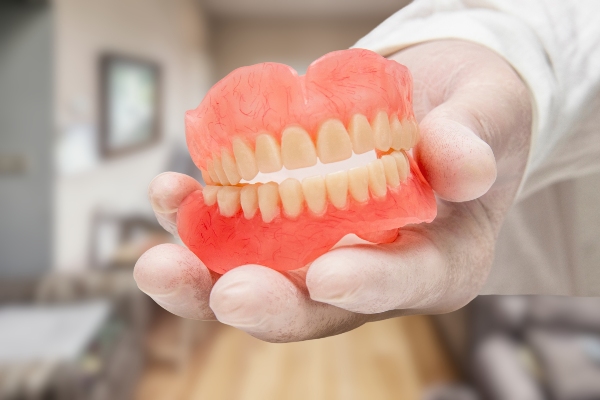Debunking Root Canal Myths: How This Procedure Protects Oral Health

The term "root canal" often causes anxiety in patients. This fear is largely due to misconceptions surrounding this dental procedure. However, a root canal is an effective treatment that can relieve pain, save a natural tooth, and prevent further complications. By understanding the most common myths about root canals, patients can approach this treatment with confidence.
Myth #1: Root canals are extremely painful
One of the most prevalent myths about root canals is that the procedure is more painful than other dental procedures. However, a root canal is no more uncomfortable than other dental treatments, such as a dental filling. Local anesthesia allows patients to experience minimal discomfort, ensuring a more comfortable experience. Additionally, the pain associated with a root canal is typically due to the infection or inflammation within the damaged tooth, not the procedure itself. A root canal removes the damaged pulp, alleviating the cause of the pain.
Myth #2: A root canal requires several visits to the dentist
While some complex cases may require more than one visit, many root canal treatments can be completed in one appointment. Advancements in dental technology have streamlined the procedure, allowing for faster and more efficient care. A general dentist may recommend a follow-up appointment in cases with severe infection or additional complications. However, a single appointment is often enough for those who need a root canal.
Myth #3: Tooth extraction is better than a root canal
Many patients assume that removing a damaged tooth is simpler than a root canal. However, dentists typically look at tooth extraction as a last resort. Their priority is often to save a natural tooth, as it maintains the structure and alignment of the surrounding teeth. Extracted teeth can lead to other issues, such as shifting teeth, bone loss, and difficulty chewing.
A root canal allows patients to preserve their natural teeth while removing the source of infection or decay. In contrast, those who undergo tooth extraction may need extra procedures to replace the missing tooth, such as a dental implant or bridge. These options often cost more in the long term and require additional appointments. A root canal is often a more conservative and cost-effective option while preserving the patient's natural teeth and offering long-term oral health benefits.
Myth #4: Root canals are only necessary for tooth pain
While severe tooth pain is a common reason for patients to seek a root canal, it is not the only indicator that one is necessary. In some cases, patients may not experience pain at all yet still require a root canal due to an underlying infection or damage to the tooth. Dentists can detect these issues during routine exams using tools such as X-rays and visual examinations, identifying areas of decay or infection before they get worse.
Early treatment through a root canal can prevent complications, even if the patient is not experiencing any dental pain. Regular dental check-ups also allow for early diagnosis, allowing patients to treat issues before they escalate and require more extensive treatment.
Myth #5: The results from a root canal do not last long
Another common misconception is that a root canal is only a temporary solution. In truth, with proper care, a root canal-treated tooth can last a lifetime. After the procedure, the tooth is often restored with a crown or filling to provide strength and protection. Maintaining good oral hygiene, attending regular dental check-ups, and promptly addressing additional dental issues contribute to a root canal's long-term success.
Studies show root canals have a high success rate, with many treated teeth remaining functional and healthy for decades. The procedure is designed to be a permanent solution, allowing patients to preserve their natural teeth and avoid further complications.
Myth #6: Root canals make teeth brittle and prone to breaking
While it is true that a tooth that has undergone a root canal can lose some of its natural strength, dental restoration techniques help mitigate this. A tooth that has received a root canal is typically fitted with a crown or other restorative materials to reinforce its structure. These protective measures significantly reduce the likelihood of the tooth breaking or becoming fragile over time.
Dentists use advanced materials to restore the strength of the patient's teeth, ensuring they can withstand regular biting and chewing forces. By following proper oral care practices and having regular dental exams, patients can maintain strong, functional teeth that support overall dental health.
Root canals protect your long-term health
Dispelling the myths around root canals empowers patients to make informed decisions that protect their long-term oral and overall health. Root canals are essential dental procedures that help patients maintain a healthy, confident smile. For more information, schedule a consultation visit today at Brimhall Dental Group.
Request an appointment here: https://brimhalldentalgroup.com or call Brimhall Dental Group at (661) 249-1122 for an appointment in our Bakersfield office.
Check out what others are saying about our dental services on Yelp: Root Canal Treatment in Bakersfield, CA.
Recent Posts
Finding out that you need a root canal can be terrifying. This procedure has always been seen in a negative way. In truth, this treatment can restore your dental health. Here are the details on how a root canal can prevent tooth loss.The dentist will remove the inflamed or infected pulp material from its chamber.…
Root canal therapy is often recommended to resolve issues that cause severe tooth pain, such as deep dental decay and tooth infection. In addition, root canal therapy can also save a damaged tooth from needing to be extracted, falling out, and/or causing concerns with surrounding teeth and the gums.A dentist may recommend root canal therapy…
Endodontics treatment is recommended when the pulp chamber of a tooth has been compromised. This area contains soft tissues like blood vessels and nerves, and it is sealed off from the rest of the tooth so bacteria and acids in the mouth cannot reach the soft tissues in it.Severe tooth decay or damage to a…
Endodontics is a dental specialty that deals with the study, diagnosis, and treatment of the dental pulp and the tissues surrounding the root of the tooth. Endo is a Greek word meaning inside, while "odont" is a Greek word meaning tooth. Endodontics treatment involves treatment of the soft pulp tissues inside the tooth.An endodontist is…


